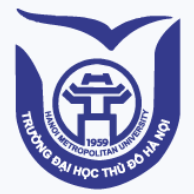Overview
Name: Trường Đại học Thủ đô Hà Nội, Hanoi Capital University, HACU
Location: Located in Hanoi, northern Vietnam, the specific address is 97 Nguyen Van Chui Street, Thanh Xuan District, Hanoi.
Introduction: Hanoi Capital University is a comprehensive higher education institution that provides multidisciplinary education and research in science, technology, social sciences, humanities, economic management and other fields. The school is committed to cultivating talents with professional knowledge and practical ability to contribute to the socio-economic development of the local and even national areas. Hanoi Capital University enjoys a good reputation in the local area and is one of the important educational and research institutions in the region.
Campus and number of students
Campus: The main campus of the school is located in Thanh Xuan District, Hanoi. The campus environment is beautiful and the facilities are complete, including modern teaching buildings, laboratories, libraries, sports facilities, etc.
Number of students: The school currently has about 18,000 students, including undergraduates, postgraduates, and various short-term training students.
Educational philosophy
The school adheres to the educational philosophy of "science, innovation, and practice", focuses on cultivating students' practical operation ability and innovation ability, encourages students to actively participate in scientific research projects and social practice activities, and improves their comprehensive quality.
Disciplines and departments
The University of Hanoi has several colleges and departments, covering the following major disciplines:
College of Natural Sciences: Research mathematics, physics, chemistry, biology, etc., and cultivate natural science professionals.
College of Engineering and Technology: Research mechanical engineering, electrical engineering, civil engineering, information technology, etc., and cultivate engineering and technology professionals.
College of Economics and Management: Research economics, management, accounting, marketing, etc., and cultivate economic management professionals.
College of Social Sciences and Humanities: Research social sciences, psychology, education, language and literature, etc., and cultivate social science and humanities professionals.
College of Foreign Languages: Research foreign languages such as English, Chinese, and Japanese, and cultivate foreign language professionals.
College of Law: Research law, international law, commercial law, etc., and cultivate legal professionals.
College of Art and Design: Research fine arts, design, music, etc., and cultivate art and design professionals.
School of Tourism and Hotel Management: Researches tourism management, hotel management, tourism planning, etc., and cultivates professionals in tourism and hotel management.
School of Medicine and Health Sciences: Researches medicine, nursing, public health, etc., and cultivates professionals in medicine and health sciences.
Course Setting
Undergraduate Courses: Provides undergraduate courses in natural sciences, engineering technology, economic management, social sciences and humanities, foreign languages, law, art and design, tourism and hotel management, medicine and health sciences, etc.
Postgraduate Courses: Provides master's courses in some majors, such as economic management, engineering technology, law, medicine and health sciences, etc.
Short-term training: Provides various short-term training courses for in-service personnel, such as management skills, information technology, foreign language training, etc.
Practice and Internship
Internship Opportunities: The school cooperates with many enterprises, research institutions and government departments to provide students with internship opportunities to help students apply theoretical knowledge to practical work.
Scientific Research Projects: Students have the opportunity to participate in the school's scientific research projects and conduct cutting-edge research with their mentors.
Social Practice: The school encourages students to participate in various social practice activities, such as volunteer services, community development projects, etc.
Ranking
The University of Hanoi in the capital enjoys a high reputation in northern Vietnam, especially in local development and application-oriented talent training. Although international rankings may not be easy to obtain, it is in a good position among similar domestic institutions.
Cost
Tuition fees: The tuition fees for local Vietnamese students per semester are about 2 million to 4 million VND (about RMB 600 to 1,200). The tuition fees for international students will be higher, and the specific amount needs to be consulted by the school officials.
Other expenses: Including accommodation fees, textbook fees, living expenses, etc. The specific fees vary depending on personal circumstances.
Campus environment
Facilities: The school has modern teaching buildings, laboratories, libraries, sports facilities, etc. There are also multiple learning and leisure areas on campus, providing a good learning and living environment.
Accommodation: The school provides dormitories for use by out-of-town and international students. The dormitory conditions are good and equipped with basic living facilities.
Notes
Language requirements: Some courses may be taught in English, but most courses are still taught in Vietnamese. International students need to have a certain foundation in Vietnamese.
Application materials: Prepare complete application documents, including transcripts, letters of recommendation, personal statements, etc.
Visa and Insurance: Make sure you have the necessary visas to study in Vietnam and purchase appropriate insurance.
Cultural Adaptation: Learn about Vietnamese cultural customs to better integrate into local life.
Official Website
-
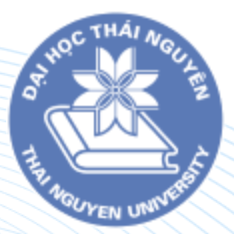
Đại học Thái Nguyên,Thai Nguyen University
-

Đại học Quốc gia Hà Nội,Vietnam National University, Hanoi
-
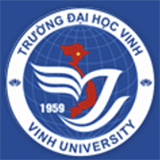
Trường Đại học Vinh,Vinh University
-
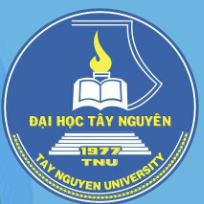
Trường Đại học Tây Nguyên,Tay Nguyen University
-
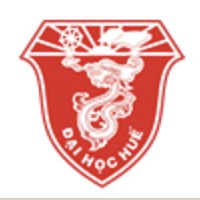
Đại học Huế,Hue University
-

Đại học Quốc gia Thành phố Hồ Chí Minh,Ho Chi Minh City National University
-
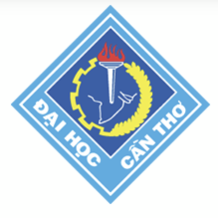
Trường Đại học Cần Thơ,Can Tho University,CTU
-
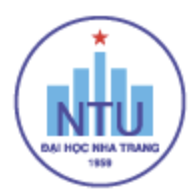
Trường Đại học Nha Trang,Nha Trang University
-
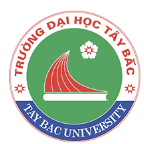
Trường Đại học Tây Bắc, Tay Bac University
-

Trường Đại học Công nghệ Giao thông Vận tải,University of Transport Technology
-

Mesoamerican University
-

Istmo University
-

Mariano Galvez University of Guatemala
-

Regional University of Guatemala
-

Galileo University
-

Francisco Marroquín University
-

Rafael Landívar University
-

University of the Valley of Guatemala
-

University of San Carlos of Guatemala
-

Technological Institute of Tlaxcala Plateau
-

Golfo University
-

Technological University of South Sonora
-

Technological University of Huejotzingo
-

Tizimín Institute of Technology
-

Chilpancingo Institute of Technology

